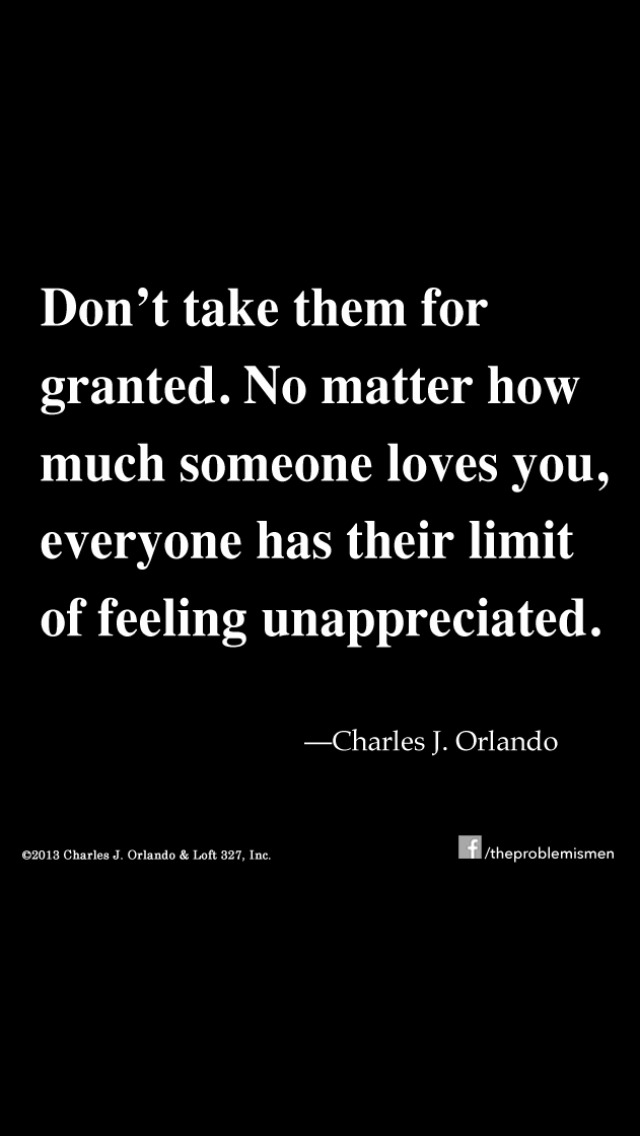Unappreciated And Ungrateful Quotes: Words That Resonate In Our Modern World
Let's face it, folks—we all know someone who just can't seem to express gratitude. Or maybe, just maybe, we've been that person ourselves. Unappreciated and ungrateful quotes aren't just words—they're reflections of human nature. In a world where we're constantly bombarded with expectations, it's easy to forget the little things that matter. But what happens when we dive deep into the words that remind us to be better?
Whether you're scrolling through social media or sitting in a quiet room reflecting on life, unappreciated and ungrateful quotes have a way of making us pause. They're not just random sayings—they're powerful tools that can shift our perspective. These quotes force us to confront the reality of our actions and the impact they have on others.
So, buckle up, because we're about to embark on a journey through the world of unappreciated and ungrateful quotes. We'll explore their meanings, their origins, and how they can help us grow as individuals. By the end of this, you might just find yourself looking at the world—and yourself—a little differently.
Read also:Unleashing The Power Female Character From Mortal Kombat You Need To Know
Table of Contents
- Understanding Unappreciated and Ungrateful Quotes
- The History Behind Unappreciated Quotes
- Examples of Unappreciated and Ungrateful Quotes
- The Psychology Behind Gratitude (or Lack Thereof)
- How Society Shapes Our Perception of Gratitude
- Ways to Appreciate Life More
- The Impact of Ungratefulness on Relationships
- Famous Ungrateful Quotes from History
- Modern-Day Unappreciated Quotes
- Final Thoughts on Unappreciated and Ungrateful Quotes
Understanding Unappreciated and Ungrateful Quotes
First things first, what exactly are unappreciated and ungrateful quotes? Well, they're not just random lines scribbled on a napkin. These quotes are carefully crafted statements that highlight the lack of gratitude in our daily lives. They serve as a mirror, reflecting our actions and reminding us of the importance of appreciation.
Think about it—how often do we take things for granted? From the roof over our heads to the people who love us unconditionally, it's easy to overlook the blessings in our lives. Unappreciated quotes remind us to slow down and acknowledge the good stuff. They're like a wake-up call, shaking us out of our complacency.
But here's the kicker—these quotes aren't just for the ungrateful. They're for everyone. Even the most grateful among us can benefit from a reminder to keep our hearts open and our minds aware. After all, gratitude isn't something we're born with—it's a skill we have to practice.
Why Do These Quotes Matter?
Unappreciated and ungrateful quotes matter because they challenge us to be better versions of ourselves. They force us to confront uncomfortable truths about our behavior and its effects on others. By engaging with these quotes, we can begin to cultivate a deeper sense of gratitude and empathy.
Plus, let's be real—quotes are just cool. They're bite-sized pieces of wisdom that we can carry with us throughout the day. Whether you're stuck in traffic or waiting in line at the coffee shop, these quotes can provide a much-needed moment of reflection.
The History Behind Unappreciated Quotes
Unappreciated quotes haven't just popped up overnight. They've been around for centuries, appearing in literature, poetry, and even religious texts. From ancient philosophers to modern-day thinkers, people have been exploring the concept of gratitude for as long as we've been able to communicate.
Read also:How Old Is Cyrus Dobrev Unveiling The Age And Journey Of This Rising Star
Take, for example, the words of the great philosopher Cicero: "Gratitude is not only the greatest of virtues but the parent of all others." This quote, written over 2,000 years ago, still resonates with us today. It reminds us that gratitude is the foundation upon which all other virtues are built.
But it's not just ancient thinkers who have contributed to the world of unappreciated quotes. Modern authors and public figures have also weighed in on the subject. From Oprah Winfrey to Brené Brown, the message is clear: gratitude is essential for a fulfilling life.
How Have Unappreciated Quotes Evolved Over Time?
Over the years, unappreciated quotes have evolved to reflect the changing values and priorities of society. In the past, gratitude was often tied to religious or spiritual beliefs. Today, it's more about personal growth and mental well-being.
For instance, consider this modern-day quote by Melody Beattie: "Gratitude turns what we have into enough." This statement speaks to the hustle culture of the 21st century, where we're constantly striving for more. It reminds us that sometimes, the best thing we can do is appreciate what we already have.
Examples of Unappreciated and Ungrateful Quotes
Now that we've established the importance of unappreciated and ungrateful quotes, let's take a look at some examples. These quotes aren't just random words—they're powerful tools that can change the way we think and act.
- "The unthankful heart discovers no mercies; but the thankful heart will find, in every hour, some heavenly blessings." – Henry Ward Beecher
- "Ingratitude is a universal sin." – Unknown
- "It is impossible to live happily if you do not feel gratitude for what you have." – Epicurus
- "The smallest act of kindness is worth more than the grandest intention." – Oscar Wilde
Each of these quotes offers a unique perspective on gratitude and its absence. They challenge us to examine our own behavior and consider how we can make a positive impact on the world around us.
What Makes These Quotes Stand Out?
These quotes stand out because they're relatable. They speak to the human experience in a way that resonates with people from all walks of life. Whether you're a CEO or a stay-at-home parent, these words have the power to make you stop and think.
They also offer practical advice. Instead of just telling us to "be grateful," these quotes provide actionable insights into how we can cultivate gratitude in our daily lives. They remind us that gratitude isn't just a feeling—it's a choice.
The Psychology Behind Gratitude (or Lack Thereof)
So, why do some people struggle with gratitude? It's not because they're inherently bad—it's often because they haven't been taught how to practice it. The psychology of gratitude is a fascinating field of study, and researchers have uncovered some interesting insights.
For one, gratitude is closely linked to mental health. Studies have shown that people who practice gratitude regularly tend to experience lower levels of stress and anxiety. They also report higher levels of happiness and life satisfaction.
On the flip side, a lack of gratitude can lead to negative emotions like resentment and bitterness. When we fail to appreciate the good things in our lives, we create a vacuum that can be filled with negativity. This is why unappreciated and ungrateful quotes are so important—they remind us to focus on the positive.
How Can We Cultivate Gratitude?
Cultivating gratitude isn't as hard as it sounds. It starts with small, consistent actions. Here are a few tips to get you started:
- Keep a gratitude journal and write down three things you're thankful for each day.
- Practice mindfulness and stay present in the moment.
- Express gratitude to others through words or actions.
- Focus on the process, not just the outcome.
By incorporating these practices into your daily routine, you can begin to shift your mindset and develop a more grateful outlook on life.
How Society Shapes Our Perception of Gratitude
Society plays a big role in shaping our perception of gratitude—or the lack thereof. In today's fast-paced world, it's easy to get caught up in the hustle and forget to appreciate the little things. Social media, in particular, can contribute to a culture of comparison and dissatisfaction.
Think about it—how often do you scroll through Instagram and feel like you're not doing enough? Or how often do you hear someone complain about something that, in the grand scheme of things, isn't that important? These behaviors can lead to a cycle of ungratefulness that's hard to break.
But here's the good news—we have the power to change this narrative. By focusing on gratitude and encouraging others to do the same, we can create a more positive and supportive society.
What Can We Do to Promote Gratitude in Society?
Promoting gratitude in society starts with individual action. Here are a few ways we can make a difference:
- Lead by example and practice gratitude in your own life.
- Share unappreciated and ungrateful quotes with others to spark meaningful conversations.
- Encourage gratitude in your workplace or community through activities like gratitude circles.
- Support organizations that focus on mental health and well-being.
By taking these steps, we can create a ripple effect of positivity that extends far beyond our immediate circle.
Ways to Appreciate Life More
Let's talk about appreciation. It's not just about saying "thank you"—it's about truly valuing the people and experiences in our lives. Here are a few ways to appreciate life more and avoid falling into the trap of ungratefulness:
- Take time to reflect on the good things in your life, no matter how small they may seem.
- Practice active listening when someone shares their thoughts or feelings with you.
- Volunteer your time or resources to help those in need.
- Surround yourself with people who uplift and inspire you.
These actions may seem simple, but they can have a profound impact on your overall well-being. When we take the time to appreciate life, we open ourselves up to a world of possibilities.
What Are Some Common Barriers to Appreciation?
There are a few common barriers that can prevent us from fully appreciating life. These include:
- Comparison: Constantly comparing ourselves to others can lead to feelings of inadequacy.
- Busyness: Being overly busy can make it hard to slow down and appreciate the present moment.
- Negativity: A negative mindset can cloud our ability to see the good in life.
By identifying these barriers and working to overcome them, we can cultivate a deeper sense of appreciation for all that life has to offer.
The Impact of Ungratefulness on Relationships
Ungratefulness can have a significant impact on our relationships. When we fail to express gratitude, we risk damaging the connections we have with others. This can lead to misunderstandings, resentment, and even the end of a relationship.
On the other hand, expressing gratitude can strengthen relationships and foster deeper connections. It shows the other person that you value them and appreciate their presence in your life.
So, how can we avoid the pitfalls of ungratefulness in our relationships? It starts with communication. Make sure to express your gratitude regularly, whether it's through words, actions, or thoughtful gestures.
How Can We Build More Grateful Relationships?
Building more grateful relationships requires effort and intentionality. Here are a few tips to get you started:
- Practice active listening and show genuine interest in the other person's life.
- Express gratitude regularly, even for small things.
- Be patient and understanding when conflicts arise.
- Make time for meaningful conversations and shared experiences.
By focusing on gratitude, we can create relationships that are built on trust, respect, and mutual appreciation.
Famous Ungrateful Quotes from History
Throughout history, there have been countless famous ungrateful quotes that have stood the test of time. These quotes offer valuable insights into the human condition and remind us of the importance of gratitude.
- "Ingratitude is the essence of vulgarity." – William Hazlitt
- "He who is not grateful for little things will not be grateful for great


